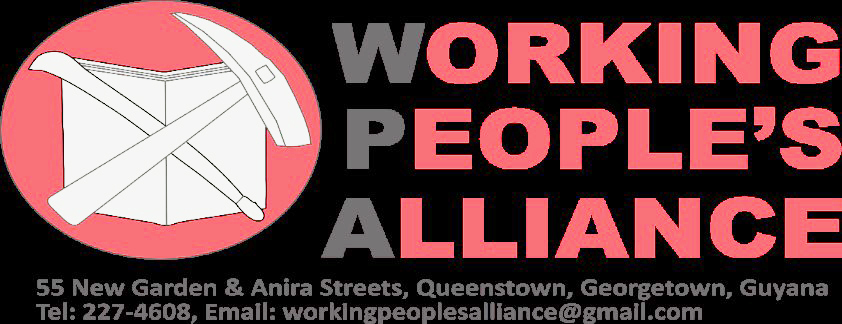Pointing to what it described as the glaringly obvious ethnic insecurities which pervade elections, the Working People’s Alliance (WPA) has said that an entirely novel approach to national constitutional governance is, perhaps, Guyana’s biggest need.
Merely tinkering with inclusivity, it said, “Will never be enough.”
According to a press release yesterday, the WPA said that in the coming weeks, it will delve into the revealed evidence of how serious the ethnic divide has become—supporting and reinforcing political formations.
“Our bottom-line consideration is that, at this historical conjuncture it has become glaringly obvious, neither African Guyanese nor Indian Guyanese, as a general group, are prepared to feel secure in their destiny, with the “other” in Government,” the release said.
The WPA said it concurs with the view that, undoubtedly, this insecurity is magnified whenever national elections are held and that consequently it believes this makes national elections an “existential threat for both races.”
The political party which is one of several making up the opposition A Partnership for National Unity + Alliance for Change (APNU+AFC) coalition said that “with the stakes this high, no political holds are barred.”
It expressed the belief that “this de facto reality reveals exhaustion of the creative political capacity of the present Constitution,” and went on to posit the need for what it said is an entirely novel approach to national constitutional governance, adding that “tinkering with inclusivity will never be enough.
The release said that after five months, a winner of the disputed March 2nd elections has been declared and a new Government is formally in place and firmly in transition; but “the electoral crisis continues, even as it has shifted focus to election petition and the future of GECOM (Guyana Elections Commission).”
The WPA said that similarly the political crisis continues; this time shifting focus to the new government’s governance—its executive actions, legislative agenda, the state security apparatus, and the courts.
For it, the WPA said that at this juncture, “racism is the ruling dynamic framing the extant electoral and political crises.”
According to the Party in its release, this conjuncture has unfolded badly, even though former President David Granger, on behalf of the coalition, “has consistently maintained at home and abroad that, his government would stand by its twin assurances of abiding with the rulings of the courts and the Chair of GECOM.”
According to the WPA, “the coalition government has never ever come close to any political violence, killings, assassinations, repression of political persons, or holding political prisoners,” while stating that it (the WPA) therefore, unapologetically endorses the position that the APNU+AFC coalition has been “the most democratic post-independence regime, and has presided over two local government elections, losing both, with no accusations from the opposition (now governing People’s Progressive Party /Civic), of electoral fraud.”
The WPA in its release urged that this be compared to global experience while adding that the United States has been the harshest critic of the Coalition during the crises and that “ironically, its President has accused his political democratic opposition of rigging the forthcoming 2020 elections and predicting that it would require “four years to never” to sort this out.”
The WPA has been sharply criticised for appearing to turn a blind eye to blatant attempts to rig the March 2 general elections in favour of the former ruling coalition of which it was a part. It has also been criticised for seeking new governance arrangements which its coalition showed no interest in from 2015.






